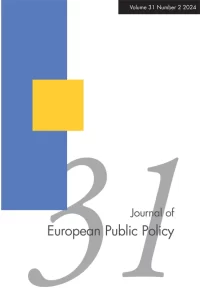Economic nationalists, regional investment aid, and the stability of FDI-led growth in East Central Europe
Published online: 07 Feb 2024
Abstract
Although economic nationalist governments in East Central Europe (ECE) have strongly challenged FDI-dependence, FDI-led growth has remained stable across the region.
 The political economy literature explains this puzzle with enduring business-state elite interactions and the disciplining role of the EU. Instead, we show that the EU’s regional investment aid rules, which provide central governments in relatively backward member states with considerable policy space, serve as the main policy tool for reinforcing FDI-dependence. Using a unique dataset on regional investment aid granted between 2004 and 2022 in the Visegrád countries (V4), we show that each government, regardless of its ideological background, granted the vast majority of this type of aid to foreign firms.
The political economy literature explains this puzzle with enduring business-state elite interactions and the disciplining role of the EU. Instead, we show that the EU’s regional investment aid rules, which provide central governments in relatively backward member states with considerable policy space, serve as the main policy tool for reinforcing FDI-dependence. Using a unique dataset on regional investment aid granted between 2004 and 2022 in the Visegrád countries (V4), we show that each government, regardless of its ideological background, granted the vast majority of this type of aid to foreign firms.
In addition, contrary to their political rhetoric, economic nationalist governments in Hungary and Poland outperformed their non-nationalist counterparts in granting aid to foreign firms. This suggests an instrumental use of this transnationally rooted policy opportunity: as their European political isolation grew, economic nationalists increasingly resorted to the promotion of foreign firms because the continued inflow of foreign capital has a legitimising effect both at home and abroad.
KEYWORDS: Autocratic hedging, dependent market economy, East–West divide, economic nationalism, EU state aid regime, regional investment aid



